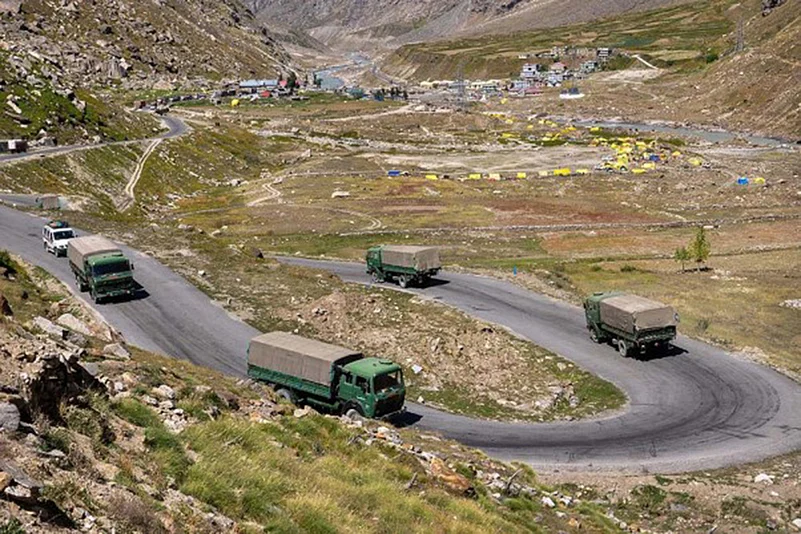Just days after being sworn in, the Biden administration in the US, has raised concerns over Beijing’s repeated attempts to "intimidate" its neighbours in an apparent reference to the India-China border standoff. The US also claimed that it was closely monitoring the situation.
A top official of the Biden administration also said that the US continues to support a “peaceful resolution” that can solve the border issue between India and China.
"We are closely monitoring the situation. We note the ongoing talks between the governments of India and China and continue to support a direct dialogue and a peaceful resolution to border disputes," Emily J Horne, spokesperson, National Security Council (NSC) of the White House, told PTI.
She was responding to a question on recent Chinese attempts to intrude into Indian territories and occupy it.
The new Biden administration also asserted that the US will stand with its partners and allies to advance its shared values in the strategically-vital Indo-Pacific region.
"The United States is concerned by Beijing's pattern of ongoing attempts to intimidate its neighbours," Horne said on Monday.
"We will stand with friends, partners and allies to advance our shared prosperity, security and values in the Indo-Pacific region," she added.
This is the first response of the Biden administration to the India-China border clashes in Eastern Ladakh. Former vice president Joe Biden, a Democrat, was sworn-in as the 46th US President on January 20.
China and India have been locked in a military standoff in eastern Ladakh since May 5, 2020. The two countries have held several rounds of military and diplomatic-level talks to resolve the face-off, but no significant headway has been made so far.
The evolving situation in the Indo-Pacific region in the wake of China's increasing military muscle flexing has become a major talking point among leading global powers. The US has been favouring making Quad, comprising a security architecture to check China's growing assertiveness.
The Quad, comprising India, the US, Australia and Japan, is aimed at ensuring a free and open Indo-Pacific, a region that witnessed increasing Chinese military assertiveness in recent years.
China is engaged in hotly contested territorial disputes in the South and East China Seas. Beijing has also made substantial progress in militarising its man-made islands in the past few years.
Beijing claims sovereignty over all of the South China Sea. But Vietnam, Malaysia, the Philippines, Brunei and Taiwan have counterclaims. In the East China Sea, China has territorial disputes with Japan.
The South China Sea and the East China Sea are stated to be rich in minerals, oil and other natural resources.
They are also vital to global trade. Although the US lays no claims to the disputed waters, it has challenged China's growing territorial claims in the South China Sea by deploying warships and fighter jets to assert freedom of navigation and overflight patrols in the strategically-vital region.
Addressing a joint session of Parliament, President Ram Nath Kovind last week said India had strengthened its military presence at the Line of Actual Control (LAC) along the two countries' shared border to protect its sovereignty.
"My government is fully committed to the protection of the interests of the nation and is also vigilant. Additional forces have been deployed to protect India's sovereignty over the LAC," Kovind said.
(With PTI inputs)


























